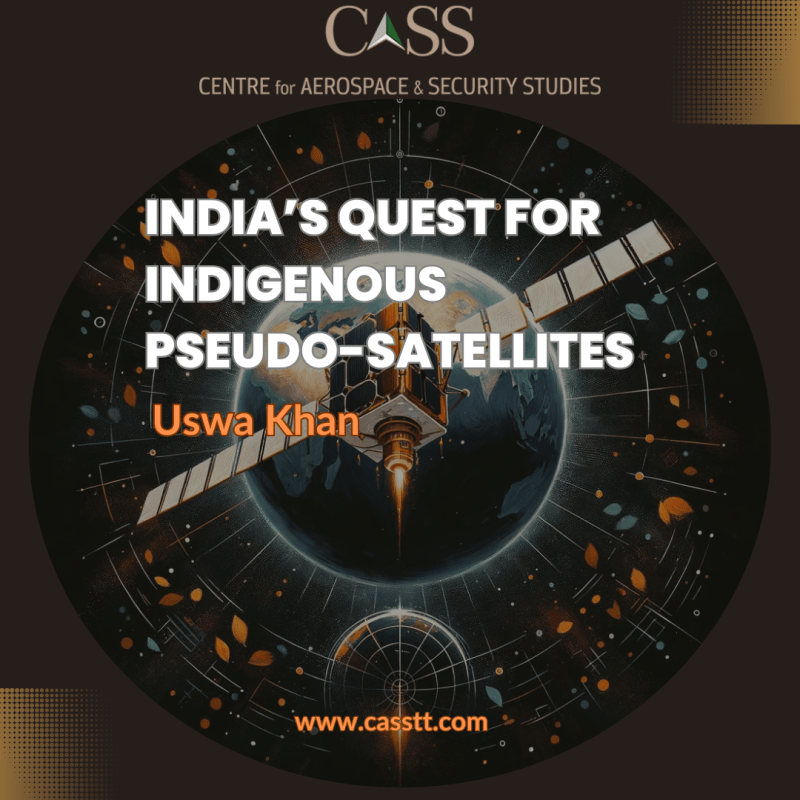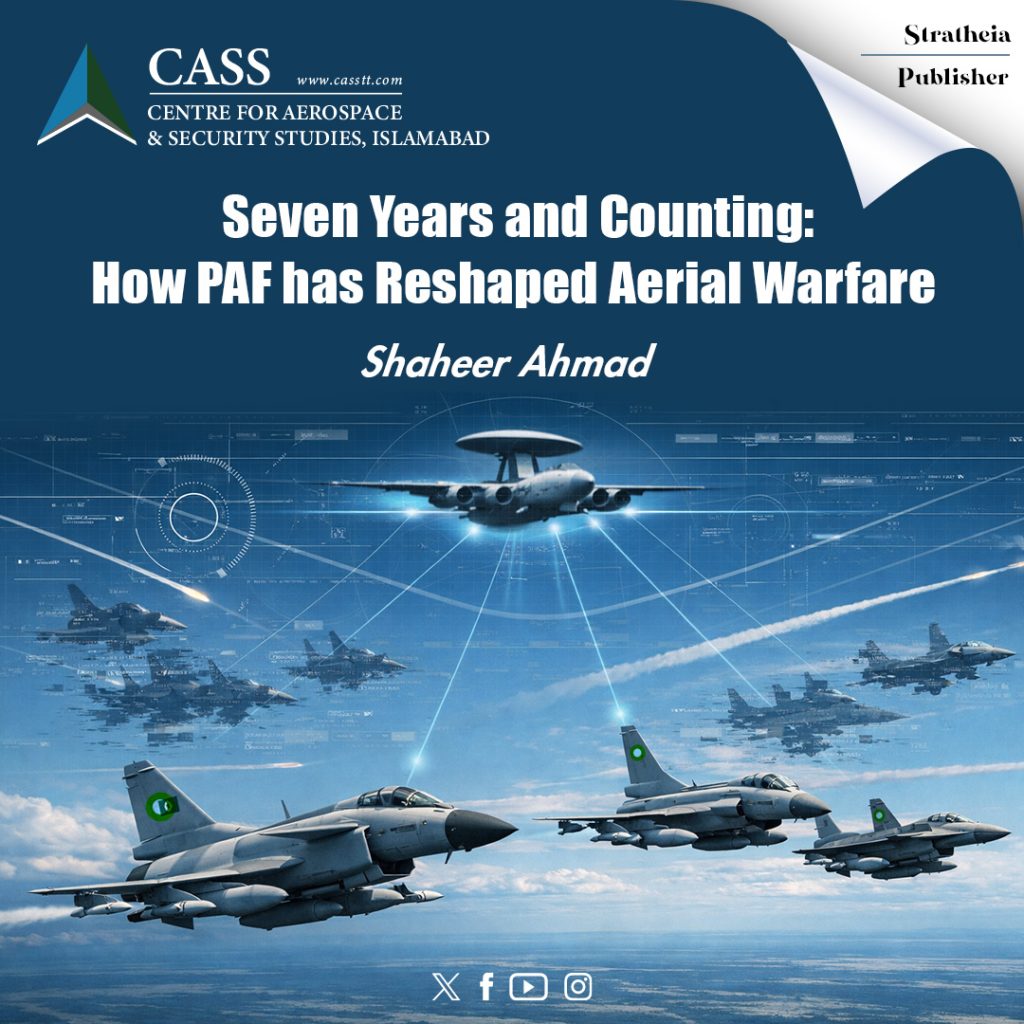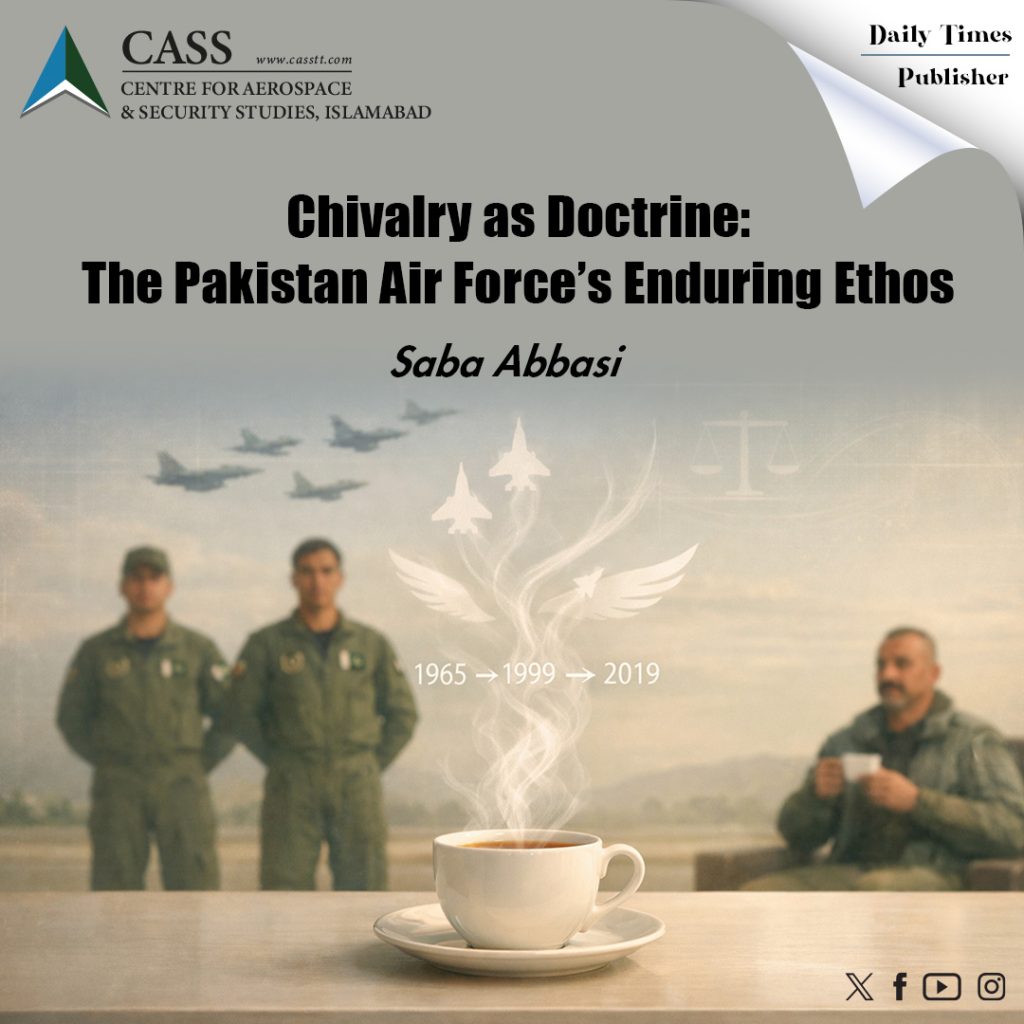The advent of technology has compelled states to revolutionise their security structures which can withstand the escalating threats concerns vis à vis land, sea, and airspace domains. Over time, an integral component in the domain of warfare has gained exponential importance i.e., space and satellites. The dependency of states on aerospace assets has created both opportunities and challenges, enabling governments to acquire and utilise space assets especially to enhance their military capabilities. This militarisation of space has resulted in a deep sense of insecurity among nations.
The United Kingdom (UK), United States (US), Russia, China, India, Germany, Italy, and Israel are increasingly employing space assets primarily for intelligence, surveillance, remote sensing, and communication purposes. Over 90% of the UK’s military forces are reliant on space assets, whereas the dependency of the US on the space-based capabilities is crucial because it serves as a critical enabler for satellites communication, navigation, missile warnings – missile tracking (MW/MT) and intelligence gathering. In this context, another significant addition in the aerospace technologies is High Altitude Pseudo-Satellites (HAPS).
HAPS are autonomous and solar battery-powered multi-mission military unmanned aerial vehicles. They can remain stationary (airborne) unlike other satellites, providing extensive geographical coverage, maritime monitoring, military surveillance and reconnaissance, and multiple payloads. HAPS have long endurance for extended periods of time i.e., weeks to months with an approximate altitude of 65,000 feet. They serve as a vital link between satellites and ground-based telecommunication networks mainly for facilitating data transfer.
In South Asia, India is considered a key player in manufacturing aerospace technologies and HAPS for enhancing their Command, Control, Communications, Computers, Intelligence and Surveillance (C4ISR). In pursuit of regional hegemony and global influence, Indian NewSpace Research and Technologies (NRT) Private Limited and Hindustan Aeronautics Limited (HAL) have developed a solar powered HAP named ‘Combat Air Teaming System – CATS Infinity’. It will be used for deep aerial strikes, surveillance and real-time communication purposes i.e., military and civilian applications with an endurance level of three months.
With the help of these pseudo satellites one can assume that India can reap multiple strategic and military benefits. HAPS are considerably cost-effective as compared to other satellites. Additionally, they can aid in border patrolling due to their area specific monitoring, offering live imagery and communication to military for their operations in remote areas which can help India to monitor its borders with China and Pakistan. In maritime operations, one technical task is the ‘problem of identification’ of vessels, whether they are civilian or navy vessels/warships. HAPS can aptly identify and differentiate the incoming vessels due to their high definition optical and infrared camera. This technology will enable the Indian Armed Forces to have efficient and effective naval operations and surveillance in the Indian Ocean Region (IOR). It is worth mentioning that high-resolution capability of HAPS can be used to monitor the deployment and movements of the strategic assets which may establish new avenues for espionage or surveillance both in times of peace and conflict.
On the other hand, advancements in the acquisition and development of indigenous pseudo-satellites and aerospace technologies by India may raise security concerns for the neighbouring countries especially Pakistan, considering the antagonistic history between the two. ‘Integrated Dynamics’ – a Pakistani privately-owned company – is also in the process of developing an indigenous version of high-altitude pseudo-satellites i.e., SOLARIS and STRATOS, for civilian as well as military purposes.
The significant investments in manufacturing or acquiring such advanced technologies may not align well with the pressing needs of both nations, given their current poverty levels – India at 21.9% and Pakistan at 24.3%. This allocation dilemma highlights a pivotal concern: the trade-off between enhancing military capabilities and addressing critical development challenges that directly affect citizens’ lives and livelihoods. In this context, an analytical conclusion suggests a strategic pivot is necessary. Instead of engaging in a technological arms race, India and Pakistan could achieve greater benefits by reallocating resources towards initiatives aimed at reducing poverty, improving health, education, and economic opportunities for their citizens. Such a shift in priorities could not only significantly uplift the quality of life within both countries but also potentially ease regional tensions, fostering a climate of mutual growth and stability.
Uswa Khan is a Research Assistant at the Centre for Aerospace & Security Studies (CASS), Islamabad, Pakistan. She can be reached at [email protected].
Design Credit: Mysha Dua Salma





